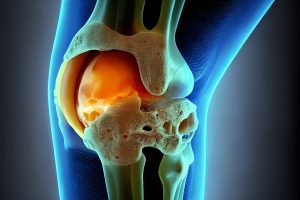Androstenedione is one of those supplements that was peddled to athletes for years as a quick path to bulging muscles and high testosterone levels, but it carries some grave dangers.
Also known as “andro,” the dietary supplement was once touted to enhance athletic performance by stimulating muscle growth and boosting testosterone levels. But once it enters the body, it acts like a steroid and can pose similar health risks.
In October 2004, President George Bush signed the Anabolic Steroid Control Act, which reclassified androstenedione from a supplement to an anabolic steroid, making it and other steroid-based drugs a controlled substance. They are currently banned in sports.
This was because a small number of studies of androstenedione led the U.S. Food and Drug Administration to believe that its use may increase the risk of serious health problems because of its conversion in the body to the hormones testosterone and a particular form of estrogen.
While over-the-counter androstenedione supplements are now banned, doctors can still prescribe it for medical purposes.
According to a study published online recently in the journal Molecules, doctors can offer androstenedione shots for preventing or treating certain chronic diseases.
Androstenedione’s dangers
But the supplement is linked to numerous side effects.
According to the Mayo Clinic, long-term use of androstenedione supplements by men can result in testicular atrophy, impotence and the development of female characteristics such as breast enlargement.
Women who use these products may develop male characteristics such as male pattern baldness, deepening of the voice, increased facial hair and enlargement of the clitoris. Women can also develop abnormal menstrual cycles, abnormal bleeding and blood clots. Androstenedione can also increase the risk of breast cancer and endometrial cancer.
Among children and teens, androstenedione can put them at risk for the same hormonal effects as adults, as well as for early onset of puberty and premature cessation of growth.
Andro supplements can also damage the heart and blood vessels in anyone who takes it, raising the risk for heart attacks and strokes, according to the Mayo Clinic.
Drug interactions
Not only can these supplements cause unwanted side effects: They also can interact dangerously with a number of other medications.
According to Drug Bank, concentrations of androstenedione can increase when taken with the head lice drug abametapir or decrease when used with the heart drug amiodarone.
Other interactions include increased concentrations of androstenedione in the presence of the prostate cancer drug apalutamide and decreased concentrations when used with aprepitant, which is used to prevent nausea from chemotherapy.
The drug HIV drug atazanavir can also increase the concentration of androstenedione, as can the erectile dysfunction drug avanafil (Stendra).
When androstenedione is used along with the asthma drug beclomethasone dipropionate, severe edema may occur. That’s also the case with the arthritis drug betamethasone.
Also, the ability to metabolize androstenedione can be affected when the drug berotralstat is used. Berotralstat is used to prevent angioedema, a hereditary swelling of the face, according to Drug Bank.
“While andro products may seem to have short-term benefits, the science shows that these same properties create real and significant health risks,” then-FDA Commissioner Dr. Mark McClellan said when the supplements were first banned.
“While the products are advertised to athletes, they have the potential to get into the hands of our impressionable youth who may believe these products will help their development,” McClellan said. “Anyone who takes these products in sufficient quantities to build muscle or improve performance is putting himself or herself at risk for serious long-term and potentially irreversible health consequences.”
Copyright © 2024 HealthDay. All rights reserved.













-300x200.jpeg)
-300x213.jpeg)










